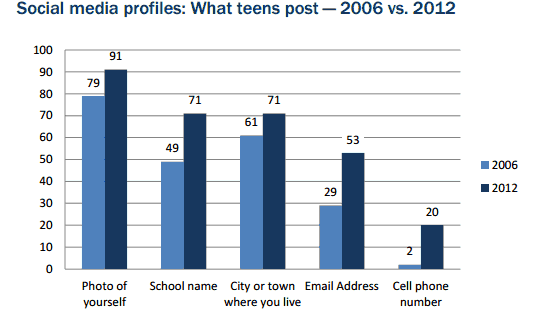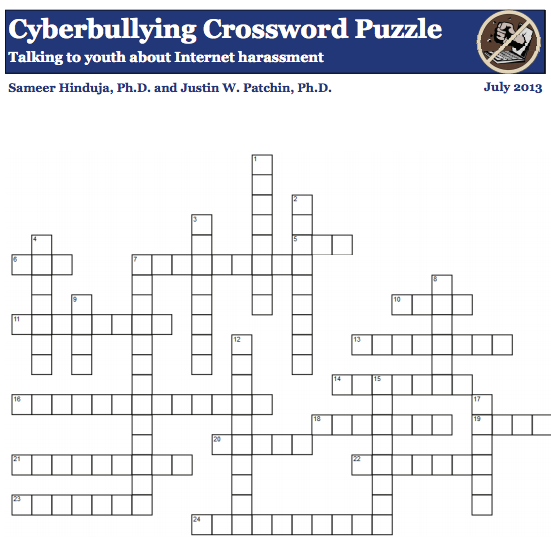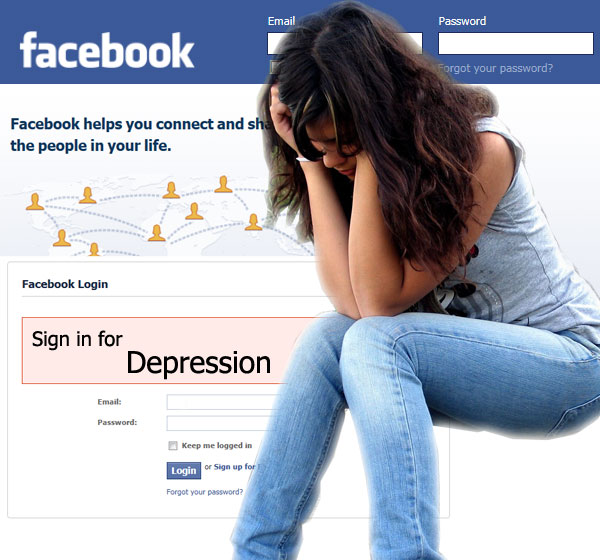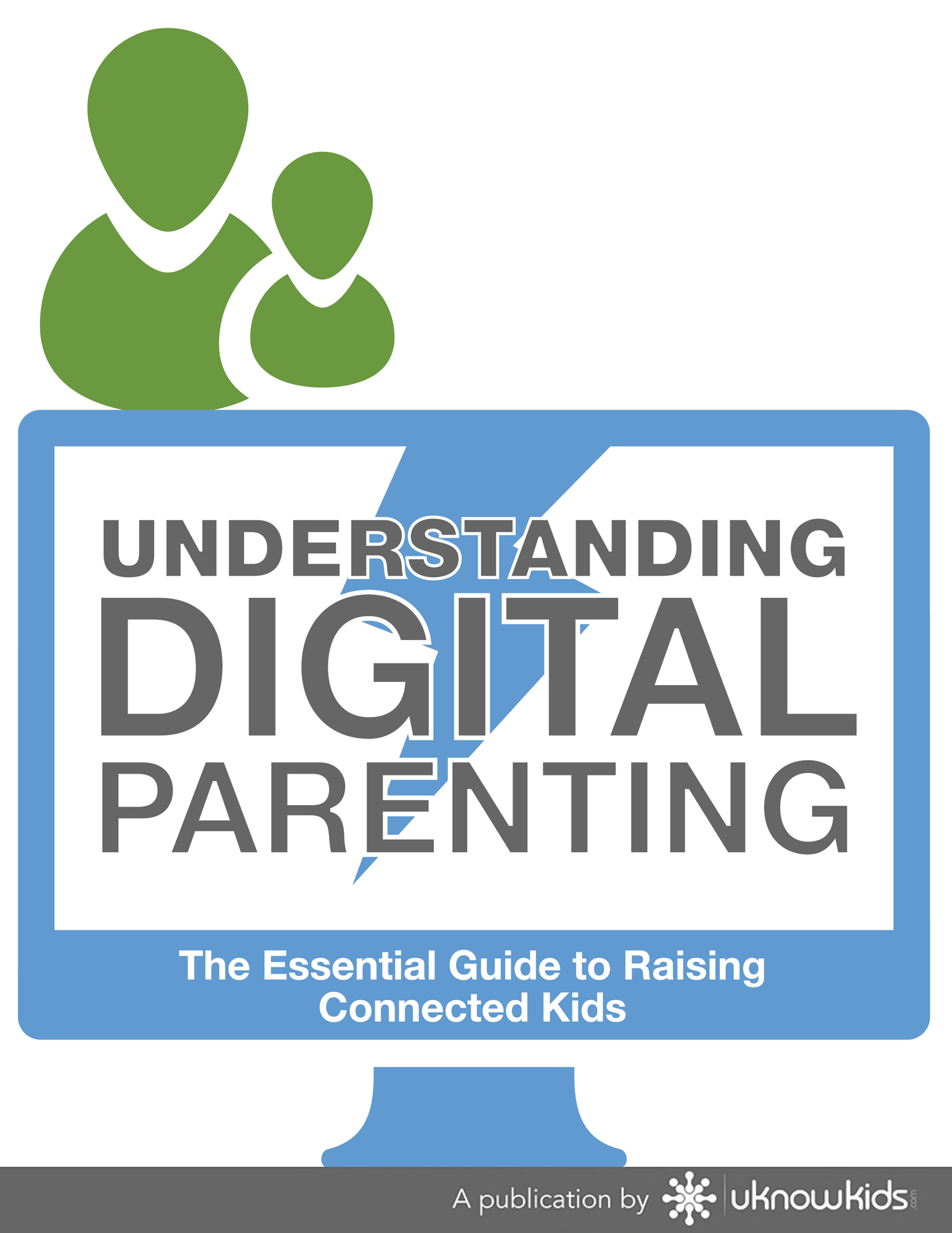Check out this great infographic from Liahona Academy, a residential treatment center for troubled teenage boys. One of their main goals is to provide parents with valuable information to help them effectively communicate with their teens. They have created this great infographic to assist in digital parenting and help mom and dad understand what their teens are doing on social media.
Warily, Schools Watch Students on the Internet
This article was originally published by the New York Times, Somini Sengupta.
For years, a school principal’s job was to make sure students were not creating a ruckus in the hallways or smoking in the bathroom. Vigilance ended at the schoolhouse gates.
10 Things Every Parent MUST Know About Cyberbullying
This article was originally published in the Huffington Post by Caroline Knorr, Common Sense Media parenting editor.
With the statistics piling up, it has become increasingly clear that the cruelties inflicted by cyberbullying have become a devastating reality for many tweens and teens.
While bullying is nothing new, when it takes place in the digital world, the public humiliation can shatter young lives. Photos, cruel comments, taunts and threats travel in an instant, and can be seen, revisited, reposted, linked to and shared by a huge audience.
We're all responsible for making the digital world a decent place. Below are some of the top concerns we've heard from parents trying to make sense of kids' online behavior.
Digital Parenting: How To Get Your Child To Pay More Attention
With all of the distractions that are around these days, children are having more and more trouble focusing. However, there are ways in which you can get your child to stay on task every day, it just takes a little digital parenting tricks.
It can be a bit difficult at first, but if you follow these plans then you will have a child that is focused and interested. Here are the best ways to build focus:
Eliminate distractions
Although you can not control the weather (which may be a distraction all in itself), there are many distractions that you can prevent.
Cell phones, computers, televisions and video games can all be off limits when it is time to study and concentrate. Consider monitoring their online and mobile usage with a service that is not too intrusive so you can ensure that they are following house rules.
Teens Get Online 'Eraser Button' With New California Law
This article was originally published in the Huffington Post by Kathleen Miles.
California teens get an online "eraser button" under a law signed by Gov. Jerry Brown on Monday. The law makes California the first state to require websites to allow people younger than 18 to remove their own postings on that website, and to clearly inform minors how to do so.
Digital Parenting: Setting Goals with Your Family
In a culture where both kids and parents are tied to their devices, no one can deny that technology has also changed the way our families interact and communicate. It can be tough to embrace technology as a family without encountering one of two extremes: the family that is never offline or the family that enforces restrictive, alienating rules. One way that you can overcome the “rule” barrier is by using parental intelligence technology that enforces the rules for you. Beyond the governance aspect, though, it may be helpful for your digital family to set goals for how you will take a stance on technology. Setting goals for your digital family’s technology use will not only make your family feel more positively about what could be viewed as more restrictive ideas, but the concept of family goals also provides a great forum for family discussion and bonding. Here are some ideas to consider including in your family’s list of technology goals:
-
We love technology: If your digital family loves to play with the latest gadgets, embrace that! Make it a family tradition to wait in line together for the latest technological toy or for a great sale on a device you all love
Download The Newest Infographic From uKnowKids!
Do you know what your teen is sharing online?
Let's face it, your kids are using social media. Whether it's for educational purposes or just for fun, their personal information may be accessible by just about anyone, anytime. The latest statistics have yielded shocking results about our nation's teens (and even adults) and their online activities.
Download this infographic and find out:
- the percentage of teens post videos of themselves online.
-
the percentage of teens with Twitter make their profile private.
-
the percentage of teens that post their cell phone number online.
-
the percentage of adults are worried that the government monitors their internet use.
-
the percentage of adults that have had their privacy violated online.
-
the percentage of teens that limit what their parents can see online.
-
and more!
Download now to get the full infographic! Feel free to share this great information with family and friends or repost on social media sites or blogs.
The Best Answer to Cyberbullying We've Seen Yet
This article was originally published in the Huffington Post by Sue Scheff.
It's a truth universally acknowledged: kids tune out their parents. They don't tune out other kids, though; we all remember hanging on an admired peer's every word when we were young.
Since so much of students' lives together take place in various nooks and crannies of the Internet, let's look at how teens can help each other out, making their social lives more satisfying and trouble-free by being cyber-shields for each other.
I've written about how both parents and teachers can play a pivotal role as cyber-shields to ensure a safe online life for their children by putting on their advisory hat and, when needed, shielding their kids from harm. We should also encourage children to act as social media role models for each other: friend-to-friend, sibling-to-sibling.
What I'm Reading: Sex, Teens And Social Media
This article was originally published in the Huffington Post by Sasha Belenky.
1. 'Social Media Is Destroying Our Lives'
Nancy Jo Sales, who wrote the Vanity Fair article that became the major motion picture "The Bling Ring," is back in the magazine with a look at teenage relationships in the age of social media. Adults may be shocked -- shocked! -- to learn that teens today are obsessed with sex. And Facebook, Twitter, Instagram, Snapchat, Tinder and other online tools are seemingly robbing America's youth of meaningful, loving relationships.
“We don’t date; we just hook up,” one girl in L.A. tells Sales. "Oral is, like, the new kissing,” says another girl in New York. Boys pressure girls to send them nude photos. “They’re definitely more forward to us online than in person,” says one girl, Zoe. “Because they’re not saying it to our faces.”
A group of friends at the mall sums up the Catch-22: “Social media is destroying our lives,” one girl tells Sales. “So why don’t you go off it?” Sales asks. "Because then we would have no life,” another girl responds.
11 Sites and Apps Kids Are Heading to After Facebook
This article was originally published on The Huffington Post by Kelly Schryver, Senior Content Specialist at Common Sense Media.
Remember MySpace? Not so long ago, practically every teen in the world was on it -- and then many left for Facebook. Now, as Facebook's popularity among teens is starting to wane, you might be wondering what the new "it" social network is. But the days of a one-stop shop for all social networking needs are over. Instead, teens are dividing their attention between an array of apps and tools that let them write, share, video chat and even shop for the latest trends.
Read More »"I Was Jailed for Cyberbullying"
Read the account from the first British person to be jailed for cyber bullying She speaks of her regret at posting a death threat online.
Keeley Houghton, 18, was sent to a young offenders' institute for three months in 2009 after writing on a social networking site that she was going to "murder" a fellow teenage girl.
The incident happened after an ongoing feud with Keeley's victim. Keeley said she she attempted to apologize to the girl on the night before she posted the message, but says her victim wouldn't listen.
"It was understandable, but I was so angry, even through to the next day," Keeley recalled on This Morning today (12 September).
"I was sat with a friend at my house and I wrote what I wrote. I don't even know what I was thinking. I didn't think she would see it. I wasn't friends with her on the social networking site."
Keeley, who is now a reformed character, removed the message within 24 hours and explained: "I knew it was wrong. I thought about it and thought, 'No, I shouldn't have written it'. So I just took it down.
"I don't know why I said it. It wasn't a threat I was going to go through with, it was just something I wrote at the time."
Instagram or Snapseed-What's Your Child's Favorite Photo Sharing App?
Kids are always collecting text messages, images, contacts, downloaded applications, check-ins and location histories. An Android device allows a parent to understand what the child is doing with their smart phone in just minutes. With an iPhone, parents review contacts and mobile images while also utilizing suites of family locator tools. But what about checking on the photo downloads and the issues that arise when kids visit photo sharing sites.
Parents Automatically Work to Protect Their Children
Almost like a knee-jerk reaction - parents have a heightened sense of protection of their kids. Its is natural for the emergent technologies to raise concerns, if not eyebrows.
The explosion of social media has led to the prevalent misuse of innocent social tools by predators. Today it seems almost inevitable that however small the chance might be - your children or teenagers may have photos that will fall into the wrong hands.
Pew Research Center Study -- Teens, Social Media, and Privacy
This is one study that all parents (and all people in general, really) need to check out! It is all about teens, social media and privacy and has great facts on what teens post, what social media sites they use the most, what areas they are concerned about while online, and much more. This study is full of great information. The more you know, the better equipped you will be to keep your kid's safe!
Digital Parenting: What Every Parent Needs to Know About Snapchat
Keeping up to date with the evolution of social media can be a challenge for any parent, but familiarizing yourself with the latest trends is a vital part of digital parenting. Facebook, Twitter, and Instagram are the most popular social media outlets, but there are many less known apps that are gaining a large teen following. One app that is taking over social media is Snapchat. Snapchat, which is used largely by teens and young adults, allows its users to send pictures to their friends that self-destruct after they are viewed. Unfortunately, the promise of a picture disappearing is not entirely true. The person receiving the photo can choose to take a screenshot of it. Even though the sender is notified the screenshot was taken, once the recipient has acquired the photograph how they choose to use the image is out of the original senders hands.
With the allure of a picture vanishing once it is viewed, Snapchat has become an app that is widely used for taking photos of a sexual natures. While parents are aware of sexting by text message, they may not realize their teens have found a new way to send inappropriate images of themselves. Snapchat's advertising as a self-destructing photo app has created a false sense of security in teens and young adults. The reality that the receiver of the image can take a screenshot of the photo and use it any way they want without the senders consent is a consequence a teen may not fully comprehend.
Cyberbullying Crossword Puzzle for Kids
By Sameer Hinduja and Justin W. Patchin
A crossword puzzle to be distributed to youth to promote discussion about cyberbullying.
A look at the clues, download the PDF here:
ACROSS
5. Acronym for the company that provides an Internet connection to individuals or companies.
6. Short for “World Wide Web” or pages linked together via the Internet
7. A wireless handheld device which allows for telephone communications.
10. Interactive web journal or diary, the contents of which are posted online and then viewable by some or all individuals.
11. An electronic device that stores and processes information and also facilitates electronic communication when connected to a network.
10 Things Parents Do On Social Media That Embarass Their Kids
Most adolescents and teens can’t imagine a world without Facebook, Twitter and other social media sites. As a parent, you may feel a responsibility to monitor your child’s social media use, and that makes sense.
However, it’s important to make a distinction between necessary monitoring, which you’re doing for your child’s safety, and simply impinging on their social life and interactions with their friends. Facebook for kids is a form of interaction – one that most children want limited to their peers as much as possible.
Here are 10 things that parents do on social media that might be embarrasing to their children:
1. Posting Too Much
Digital Parenting: How to Deal with a “Cry for Help” on Facebook
Those of us who are in their thirties remember a time when the things that parents did and the things that kids did were totally separate. Parents went to work, had dinner parties with their friends, or went to movies or the theatre. Teens, on the other hand, hung out with friends at school, gossiped in the cafeteria, and went to raucous parties at each other’s places. The only time that parents were able to monitor teens was when they were at home in the evenings. Before the advent of cell phones, you couldn’t get in touch with anyone at a moment’s notice.
Now, the two worlds overlap all the time on Facebook, where parents as well as children have accounts. It’s easy to keep an eye on teens by logging in and taking a look at their latest posts, especially if the teen has agreed to be “friends” with his/her parents on Facebook. Although teens may not always want their parents to know what they’re up to, who they’re communicating with, and what exactly they’re saying, you still find many teens posting nasty comments about others when they know that their parents are sure to see them.
Do these kids just not realize that Facebook is not like a private diary? Or are they actually hoping to be noticed by engaging in behaviors that psychologists call a “cry for help”? A good example of a “cry for help” in real life, as opposed to the digital arena, is when a person swallows a large number of sleeping pills, but not enough to kill him/her, just enough to get him/her some attention from loved ones. The person doesn’t know what to do to make things better and hopes to shock others into paying attention. There are also more everyday “cries for help,” sometimes referred to as “acting out.” These take the form of throwing tantrums, locking the door to one’s room, or constantly engaging in risky behaviors to get the attention of parents.
Crack Down On Summer Vacation Cyberbullying
With summer vacation just around the corner, kids have much more free time on their hands for social networking than they did during the school year. With that absence of face-to-face contact and communication that kids are normally exposed to during school hours, cyberbullies are provided a “protective shield” from real-life consequences. Hiding behind the safety of a keyboard, bullies feel invulnerable to any possible negative repercussions of their behavior, making them far more vicious in their attacks. Consider the following few tips on keeping your kids safe from cyberbullying this summer vacation, when decidedly taking preventative measures, or if your child falls prey to one's attacks. Be sure to instruct your children on the proper procedures to execute if they encounter online harassment.
Don't Fight Fire With Fire
Guest Post: Creating a Tween-Friendly Environment On Social Media
Whether we like it or not, we all know that tweeners are more active on social media now than ever.
Take a look down any hallway in a middle-school, and you will see kids everywhere hiding their smart phones in their lockers and bags to make a quick text or social media update.
We don't need to review the consequences and dangers of children being online unattended. We see stories about it each night on prime time TV. Horrific stories of children being abducted and held in the custody of demented strangers.
Digital Parenting: How To Do It Like a Pro
Dads and moms can’t be everywhere at once. While we would all like to be able to meet all of our work, family, and social obligations while still being able to keep both eyes squarely on our kids at all times, life just doesn’t work that way. Still we need to be conscientious parents and we’d like to know what’s going on with our kids for those hours a day that their heads are burrowed into their phones, tablets, laptops, and computers. Digital parenting is one of the newest trends sweeping the nation and this is something which has been borne out of both curiosity and necessity.
What it is: Digital parenting gives parents the tools they need to monitor their kid’s virtual activities. It’s no secret that there are bad people out in the world. The virtual and literal anonymity of many corners of the online world have made it vital that your kids be kept an eye on.

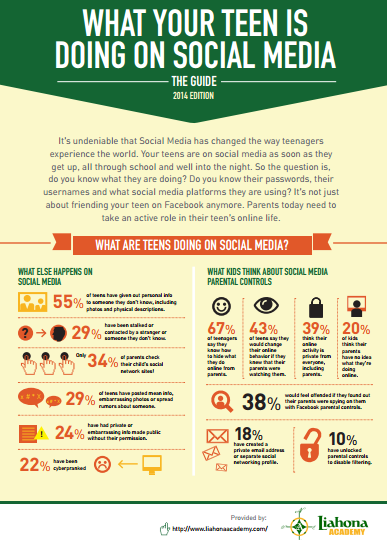


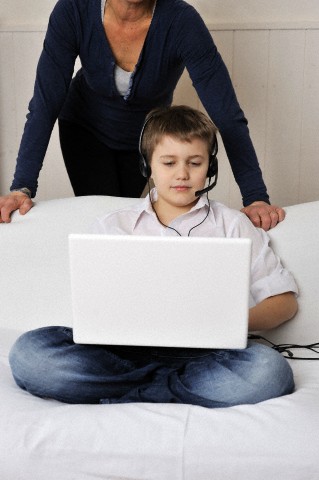.jpg)





2.jpg)


